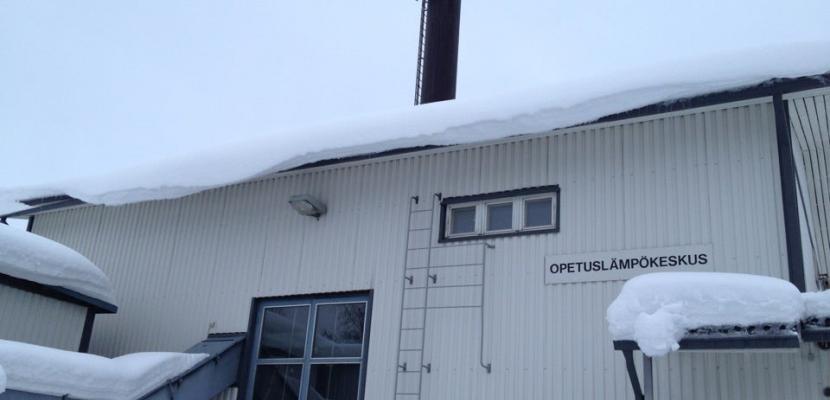Image

From Stump to Boiler, Bioenergy educational environment
Published on 08 January 2020

Finland
This is the good practice's implementation level. It can be national, regional or local.
About this good practice
The aim of the educational environment is to develop the professional skills needed by employees in the bioenergy production chain. The educational environment covers the whole value chain of bioenergy production “From Stump to Boiler”. The educational environment is run by REDU, the largest vocational education provider in Lapland. Students from various departments of the vocational school are operating the harvesters, the vehicles transporting of timber from the forest to the terminal, chippers and terminals, the combustion of the biomass and the spreading of ash for fertilising new forests. The student body is made of both youth and adult students with a large variation in skill levels and experience.
The major issue in bioenergy education has been in the training of energy production plant specialists. Students are ineligible to do apprenticeships at energy production facilities, due to strict security rules. This makes passing the knowledge and practical skills for students difficult. Apprenticeship education makes it difficult to send professionals to further education at the school, as this would incur costs for the employers and the employees who are learning new skills.
The education is implemented through short-term local teaching periods, which interact with working in a real-life working environment (district heating plant). The learning environment integrates students from the various sectors from gathering biomass, to logistics, to energy production.
The major issue in bioenergy education has been in the training of energy production plant specialists. Students are ineligible to do apprenticeships at energy production facilities, due to strict security rules. This makes passing the knowledge and practical skills for students difficult. Apprenticeship education makes it difficult to send professionals to further education at the school, as this would incur costs for the employers and the employees who are learning new skills.
The education is implemented through short-term local teaching periods, which interact with working in a real-life working environment (district heating plant). The learning environment integrates students from the various sectors from gathering biomass, to logistics, to energy production.
Expert opinion
Bioenergy has significant potential across Europe, but is dependent on local value chains, and therefore also local skills and employment. This is a good example of a training course covering the full value chain for local bioenergy, which can create new jobs and opportunities as well as contributing towards regional energy goals. The course has clearly been successful, with graduates in full employment. All regions looking to boost the use of bioenergy should ensure that the skills needed are available to them locally, and as such, should consider such an educational approach.
Works at
Interreg Europe Policy Learning Platform
Resources needed
The educational district heating plant is run by 2 members of staff, a full-time teacher and a specialist. The plant is not profitable and requires money from REDU (around 25-50,000 euros annually). REDU is owned by 6 municipalities of Lapland and is funded by them and through state subsidies.
Evidence of success
The learning environment is unique in its scope, as it is student-run and covers the supply chain from harvester use to logistics to refining biomass and producing energy. This gives the student a learning experience of every part of the production and usage chain. Graduates are in full employment. REDU has been able to develop the efficiency of the educational plant, and students have been able to use these skills in their jobs to improve the efficiency and lifetime of district heating plants.
Potential for learning or transfer
Building an educational environment is a way to empower students and help them gain skills that might be impossible to learn only through theory, or during employment, due to lack of teaching resources on the job. For district heating plant operators, it is impossible to practice failure management and problem solving in the actual working environment, as the local cities are dependent on the heat produced by the actual district heating plants.
Public authorities responsible for vocational education around Europe could learn from this model to develop skills for their workforce with regards to the specific needs of their energy sector. Educated professionals can reduce expenses, lengthen lifecycles and reducing in emissions in district heating plants.
REDU aims to export the model abroad. Currently a simulation district heating plant is in development, where the actual existing plant has been modelled so the teaching can be provided virtually.
Public authorities responsible for vocational education around Europe could learn from this model to develop skills for their workforce with regards to the specific needs of their energy sector. Educated professionals can reduce expenses, lengthen lifecycles and reducing in emissions in district heating plants.
REDU aims to export the model abroad. Currently a simulation district heating plant is in development, where the actual existing plant has been modelled so the teaching can be provided virtually.
Further information
Website
Good practice owner
You can contact the good practice owner below for more detailed information.
Organisation
Lapland Education Centre REDU

Finland
Pohjois- ja Itä-Suomi
Contact
Project Manager
